TECHNOLOGIES
The complex and interdisciplinary nature of technology makes it even more difficult for companies to achieve their full potential for value creation. In this context it’s necessary to have a good understanding of the technological and non-technological aspects, of their implications, critical aspects and opportunities.
To access new technologies by implementing them in specific contexts, companies need to collaborate with technological infrastructures to conduct initial experimentation, testing activities, prototyping and demonstration of solutions consistent with the transformation roadmaps that companies intend to embark upon.
To respond to this need Speedhub works together with a network of experts within the world of innovation, fostering strong cooperation between research and industry and between users and suppliers of innovation throughout the value chain.

Additive manufacturing
Additive manufacturing technology offers a range of advantages and can be applied in numerous sectors that produce mechanical, automotive, and health prostheses components, and customisation for the production of clothing through rapid prototyping, modelling, and sintering.

Big data e analytics
The analysis of an extensive database is key for optimising products and production processes. Training initiatives aimed at developing the knowledge and possible applications of artificial intelligence and machine learning are an important element.

Blockchain
The blockchain is not a single technology, but rather an architecture that enables an asynchronous network to carry out transactions and to maintain a shared and unalterable secure registry. This provides companies with a range of advantages for innovating processes, products and transactions.

Cloud computing
The key enabler of artificial intelligence is Cloud Computing. This technology is experiencing exponential growth. It provides users with remote access to hardware resources and software services and is offered as a service by a provider.

Cybersecurity
Cybersecurity concerns the management of data, information and business processes from both a technological and organisational point of view (IT and OT), and requires a vulnerability assessment to identify the most appropriate interventions.

Digital twin
The simulation between interconnected plants, machines and robots/cobots allows for the optimisation of manufacturing processes (adaptive manufacturing and predictive maintenance, cognitive systems, modelling environments, etc.).

Industrial Internet of things
The IIoT are smart objects that allow the acquisition and transmission of data within an industrial context. The data are then processed in the cloud or within an edge computing network to provide insight and automation in order to maximise system efficiency throughout manufacturing operations.

Augmented reality
Augmented reality technology is used in various sectors including automotive, manufacturing, smart packaging and smart operations. In industry, this technology provides numerous application opportunities and allows certain activities to be conducted remotely: logistics, maintenance, marketing, remote training.

Lifting technologies
'Ergonomic handling systems’ provide solutions for operators who routinely carry out manual handling of loads in sectors such as building, logistics, healthcare and manufacturing which could potentially lead to pathologies and musculo-skeletal disorders and thus require innovative ergonomic, practical and flexible solutions.
Fondazione Speedhub
Piazza Cittadella 12 - 37122 Verona - Italia
C.F. 93274940233
Mail:
Telephone: +39 045 8099426



